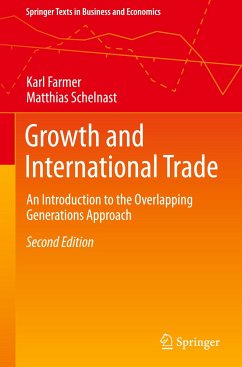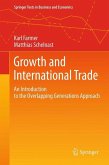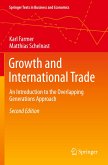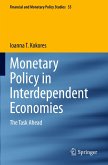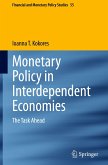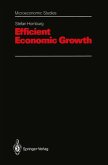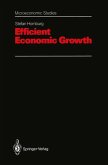Revised and updated for the 2nd edition, this textbook guides the reader towards various aspects of growth and international trade in a Diamond-type overlapping generations framework. Using the same model type throughout the book, timely topics such as growth with bubbles, robots and involuntary unemployment, financial integration and house price dynamics, policies to mitigate climate change and the persistence of religion in a globalized market economy are explored.
The first part starts from the "old" growth theory and bridges to the "new" growth theory (including R&D and human capital approaches). The second part presents an intertemporal equilibrium theory of inter- and intra-sectoral trade, investigates innovation, growth and trade and limits to public debt as well as nationally and internationally optimal climate policies. The debt dynamics of the Euro Zone and the origins of intra-EMU and Asian-US trade imbalances are also explored.
The book is primarily addressed toupper undergraduate and graduate students wishing to proceed to the analytically more demanding journal literature.
The first part starts from the "old" growth theory and bridges to the "new" growth theory (including R&D and human capital approaches). The second part presents an intertemporal equilibrium theory of inter- and intra-sectoral trade, investigates innovation, growth and trade and limits to public debt as well as nationally and internationally optimal climate policies. The debt dynamics of the Euro Zone and the origins of intra-EMU and Asian-US trade imbalances are also explored.
The book is primarily addressed toupper undergraduate and graduate students wishing to proceed to the analytically more demanding journal literature.

